- Home
- Isaac Hooke
The Forever Gate Ultimate Edition Page 7
The Forever Gate Ultimate Edition Read online
Page 7
He lay back, and his eyes drifted shut.
He started to fall asleep.
He heard Leader's voice at the back of his mind.
You'll feel utterly exhausted because of the thin air. You won't be able to think clearly. You'll want to fall asleep. But fall asleep and you die.
He batted the voice away. A short nap wouldn't hurt anything. Besides, dying didn't sound half bad right about now. It would be an end to this incredible weariness at least.
Fall asleep and YOU DIE.
He forced himself upright.
He refused to die now, after all this work. He refused.
Using the ice axes and the spikes at the tips of his boots, he pulled himself along the icy ledge in kind of a hunched crawl, making his way toward the rope that led down the other side. He was about to swing himself onto that rope when he remembered he was supposed to update the Users on his progress. He could imagine Ari sitting by the twin of the rigged diary he carried, staring at the blank pages, anxiously awaiting word of his progress.
But maybe he was just feeding his fatherly ego. Did she even care about him? She said he wasn't her father anymore. She was right. All that she was had been destroyed with her revisal. She had memories of a different father. Memories of another man bringing her to the market square every weekend. Memories of another father comforting her when she fell from the sleigh and hurt herself.
She wasn't his little girl anymore.
No, that wasn't true. No matter what memories she had, she was his little girl.
He set himself firmly on the ledge and resolutely slid off the duffel bag from his shoulder. He retrieved the diary.
It was an ordinary seeming book. For all he knew, it had no magical properties whatsoever, and any messages he printed here would remain here. He just had to trust in Leader's word, he supposed.
He slid the writing stylus from its clip on the book's spine, and pressed it to the page. He had to hold the pages down in the wind as he wrote.
I've made the top of the Gate, he transcribed. His script was terrible. He could barely grip the pencil after a climb like that, and the numbing cold didn't help, even though he sent a surge of electricity through his joints. This entry would have to be short. Snowstorm hides other side. Climbing down now.
There. That should do.
He started to return the diary to the duffel bag when a gust of wind snatched the book from him. He fumbled for the thing—
But it was too late, and the book plunged over the ledge.
He watched the diary spiral away into the vortex, soon vanishing in the snowstorm.
With a sigh, Hoodwink stowed the ice picks in the duffel bag and secured the bag to his shoulder. Then he lowered himself onto the rope and began the long climb down the other side.
The descent proved much faster than the ascent. He climbed down the wall, using the existing ropes left by the previous climbers. All of those ropes seemed to be intact this time. Even so, the way was frigid, and he was forced to expend his charge keeping warm on the way down.
When at last he reached the bottom, he was exhausted, and his charge was spent. He set foot on strangely soft ground, and instantly the snowstorm lifted.
He turned away from the wall to face a world entirely unlike the one he had left behind...
11
Hoodwink stood in a desert. Sand dunes stretched to the horizon, unbroken by any landmarks. Though it had been evening at the top of the Gate, time had reset, and the sun stood in the midpoint of the sky. The wall of the Forever Gate behind Hoodwink was the only landmark of note, unless you counted the bones of giant beasts in the distance, half-buried in the sand. The skeletons of monsters from the nine hells?
Despite the desert dunes and the bright sun, he still felt frigid, and his breath fogged white as ever. Yet when he took one step away from the wall, the heat swelled over him in waves, hotter and stronger than he'd ever felt it. He retreated against the wall, and the freezing cold enveloped him once more.
Shaking his head in disbelief, he steeled himself and then stepped forward. It felt like he'd stepped into an oven.
He untied and lowered his hood. He took off his goggles. He pulled the balaclava from his head, then knelt and unbuckled the crampons from his boots. He stripped off the remainder of his winter clothes, taking the dagger from the jacket's inner pocket and stuffing it into his trousers. He abandoned the clothes and the steel spikes at the base of the Forever Gate—there was simply no room for them in the small duffel bag.
He advanced, swilling water from the frozen bladder stowed in the duffel bag. The ice inside melted slowly, drip-feeding him the liquid.
The sand swallowed him past the ankles with each step, and he could feel the heat of the dunes through his boots. The molten sun beat down mercilessly.
He wasn't sure how long he marched, because the sun didn't seem to be moving in the sky. He guessed an hour. Long enough for the contents of the water bladder to melt entirely, anyway. And for him to drink it all.
He paused in the shade of one of those leviathans of bone. The unburied portion of the skull proved colossal, and comprised the greater proportion of the thing. From the skull extended the backbone, to which a prodigious basket of ribs was attached, erupting from the sand like a giant claw. The middle ribs had the greatest arch—bigger than some of the city footbridges. The backbone tapered as it continued toward the tail, which fanned outward in a massive rake.
He ran his fingertips across the surface of one of those ribs. The bone was porous, and had a similar texture to the Gate he had just climbed. The macabre notion came to him that the Forever Gate might be made of the bones of these beasts.
His tread became slower as time inched by and the heat sapped him. With the water bladder empty, his lips became hopelessly chapped, and his throat felt swollen. Yet he trudged aimlessly onward. There was nowhere else to go but forward. He estimated that half a day had passed since he began, yet the sun still hadn't moved a fingerbreadth in the sky.
He decided he'd take shelter in the shadow of the next giant skeleton he found. Ahead, off to the right, a suitable candidate awaited.
But before he reached the leviathan, he unexpectedly ran up against a glass barrier, flattening his face against its surface.
He slid a sweaty hand along the glass, his fingers making a distinct squeegee sound. On a whim he slammed a hand into it. The surface thudded as if it were made of thick stone. He retrieved the dagger from his trousers and slammed the hilt into the glass with both hands. THUD. This time a vibration passed along the surface. He plunged the dagger into the surface next, but the blade skidded and twisted his wrist at a painful angle. The resultant sound he heard from the barrier reminded him of pebbles skimming along ice.
He held up a palm and summoned as much electricity as he was able, but only a trickle remained, and the tendrils of energy sparked harmlessly across the surface.
Then he noticed the hooded figure standing beside the glass, not far from him. Dressed in a black gown, the figure held a scythe in its hand.
Hoodwink spun toward the figure, dagger raised. "Who are you?"
The figure said no words, but it advanced, extending a hand that was much like the bony tails of those leviathans Hoodwink had passed. The hem of the figure's robe remained stationary, as if the thing floated rather than walked. It left no footprints in the sand.
"Stay back!" Hoodwink rasped, keeping his dagger aimed high. Of all times to have no charge...
He retreated and his right elbow skidded against the glass barrier. He lost his balance, falling to the sand.
He swiveled toward the figure—
But it was gone.
"A mirage." Hoodwink laughed a laugh that quickly became a dry cough.
"Not entirely," came a quaint voice beside him.
Still on the ground, Hoodwink spun his dagger on the new arrival. It was a dwarf, dressed in a leather jerkin and breeches, with openwork sandals around his hairy toes. The dwarf held a black
umbrella, which he put to use shading his head. The symbol on his chest suggested he was a gol, though Hoodwink didn't recognize the occupation the symbol stood for. It was either three vertical lines, or the number one hundred eleven.
"Think of the image of Death as a test," the dwarf said. "You failed."
"Who are you?" Hoodwink said, unable to hold back another cough.
"Here." The dwarf popped the cork from a fresh water bladder, and tossed it to Hoodwink. "You sound terrible."
Hoodwink caught the bladder and eyed the lip suspiciously. He smelled it and then took a sip. Water. Sweet water. He drank voraciously, finally setting the bladder down with a sigh and wiping his lips.
"Better?" the dwarf said. "Good. Now we can talk about what we're going to do with you."
Hoodwink scrambled upright, using the glass barrier as a lever for his weary body. He kept the dagger pointed at the dwarf. "Who are you?"
"I am Seven," the dwarf said. "One of the main A.I.s of the system."
"The main what?" Hoodwink stared blankly at the dwarf.
"The Artificial Intelligences. One of the Master Golems, if you will."
"I knew you were a gol." Hoodwink glanced around uncertainly, wondering if any more approached in ambush. He saw only the empty desert.
"I'm very much alone," Seven said. "In more ways than you know."
"Well, I'm Hoodwink. Hoodwink Cooper. And I have a message for you gols out here."
"Oh?" Seven raised an eyebrow.
"John Baker," Hoodwink said. "Son of Arrold Baker, 18 Market Street."
Seven pursed his lips. "Yes?"
"You're to get in touch with him. He's your contact for the Users, he is. We want to help you, if we can."
Seven seemed genuinely puzzled now. "The closest city would be Section 9, and my backup copy of the records shows a house on 18 Market Street. But what is it exactly the Users want to help me with?"
"The sickness that's affecting the minds of you gols." When Seven stared back blankly, Hoodwink elaborated. "The slobbering faces. The mistakes made by the gols at the banks, the stores, and so forth. You gols aren't yourselves. Not that I care, of course. You could all die as far as I'm concerned. But I'm just the messenger."
Understanding seemed to dawn on the dwarf. "I see now. But unfortunately, there's a slight problem. I've lost communication with the Core. The Attack has damaged the root fiber and I can't interact with my complementary units. I'm afraid if you want to convey this message of yours, you'll have to travel through the Forever Gate and do it yourself."
Hoodwink narrowed his eyes. "What are you talking about? I just crossed the Gate."
"What you refer to as the 'Forever Gate' is just an artifice, a wall used to keep the humans from eating up all our computational resources. It would take googols more processing power if we allowed you beyond the towns. Generating fractal terrain doesn't come cheap, you know. Throw in the particle system, the billboarding, the occlusion culling, not to mention the lightmapping and pathfinding, all of which need to be duplicated for each and every city, and you have a system whose resources are quite nearly spent. It's a miracle it all comes together as smoothly as it does, really."
Hoodwink waved his dagger threateningly. "Speak Common, will you?"
Seven smiled, and there actually seemed to be irony, real irony in those gol eyes. "You've been hoodwinked."
Hoodwink stared at the dwarf, not knowing what to say. Then he had a thought. He indicated the glass barrier beside him, and rapped the surface with his knuckles. "This is the true Forever Gate, isn't it? The real world, the one you've been hiding from us, it's past here."
Seven pursed his lips, then nodded, a little reluctantly. "You could say that."
"Tell me how to cross."
"If you cross the Forever Gate, there's no coming back," Seven said.
Hoodwink felt a tingle of dread in the pit of his stomach, but he said, "I've heard that before. And I will come back."
"We'll see. You needn't have come all this way simply to pass the Forever Gate. Because you see, it can be crossed by anyone, anywhere."
Hoodwink regarded the dwarf doubtfully. "Really? Enlighten me."
Seven extended his arms and smiled mockingly. "Take your dagger, wedge it in the sand, and fall on it."
Hoodwink stared at the dwarf, feeling his anger rise.
"It's true," Seven said. "Dying is the only way to reach the Outside. It's in the programming. Those who sent you over the wall, these Users, they likely hoped you'd fall to your death during the climb."
Hoodwink considered this for a moment. Then a smile crept on his face.
"You're a malicious, conniving little gol aren't you?" Hoodwink said. "I don't think I've ever met one quite like you. Except, I'm not so gullible as you might think, I'm not. You may've tricked the others who came before me, but you won't take me so easily."
The dwarf spread his hands wider. "I have sold you the only real truth there is."
"You sell death!" Hoodwink said.
"But isn't death the final truth?" Seven turned around, and began walking in the opposite direction. He glanced over his shoulder. "The Forever Gate is death. Either cross death and deliver your message, or return to the city, change your name, and your face, and live out your life. And get yourself collared again if you want that life to be long."
"Don't you turn your back on me." Hoodwink rushed at the dwarf with the dagger, unleashing a guttural growl.
But the dwarf turned around and his fingertips glowed with forks of lightning. The brunt of the bolt swept past Hoodwink, but he was sent flying into the glass barrier by the trailing electrical tendrils. Sparks pulsed away from his body in surges that were absorbed into the glass as he slid to the ground.
"The next blow will not be so gentle," Seven said.
"Impossible," Hoodwink panted. He cringed at the pain he felt in his side. Broken ribs, or worse. "Gols don't have that power. It's why you collar us."
"Has anything you've seen today been possible?" the dwarf said. "Return to the city and live out your life. I'll see you on the Outside when you're good and ready."
Hoodwink noticed a flicker from the corner of his eye. Seven's lightning had done something to the glass barrier. Where the main bolt had struck, the glass intermittently faded in and out, going from a view of the desert beyond to a triangular gap of darkness the size of a man, and back again.
Seven followed his gaze, but said nothing.
Hoodwink stood, and lifted his dagger toward the defect in the glass. He touched the gap. The tip of the weapon vanished. Although the view alternated from darkness to dunes and back again, the weapon appeared in neither. It was like he held only a clipped hilt.
When he pulled the weapon out, the dagger was whole.
"You have found your Forever Gate after all," Seven said. "Stepping beyond the outermost boundaries of the system is the same as death."
"As I said, I'm not so gullible." The dagger had returned. He would too.
He hoped.
He glanced at Seven. "Better pray I don't find you on the other side."
Before he could change his mind—and he was very close to changing it—Hoodwink stepped through the gap.
12
The world deflated like a child's balloon.
Hoodwink awoke in some kind of goo. He couldn't open his eyelids, because the substance burned his eyes. He couldn't breathe, because his lungs were filled with the stuff. He kicked and writhed, and in his panic he discovered a pliant membrane. He pressed on it with his hands, and it enveloped his arms up to the elbows. Abruptly the sheath yielded, and he slid into the open air.
He landed on a hard floor, the goo splattering all around him. He thrashed, coughing the fluid from his lungs, spitting the mucoidal substance from his mouth. He scooped the goo from his eye sockets, and he was able to open his lids for short spurts, though his eyes still burned, and he saw flashes of an iron hallway.
As his cough subsided, and the air flowed in an
d out of his lungs, he devoted more time to clearing the goo from his eyes. He blinked rapidly, letting the tears flow, and he was able to open the lids for longer and longer periods. His right eyelid had a bit of a painful tic, but he ignored it.
A rotating red light mounted near the pod bathed the scene alternately in shadow and light. He was lying on an iron grill. There was a siren wailing.
He forced himself to sit upright. A strange weight pressed into his gut.
He glanced down.
An umbilical cord was attached to his belly. Pulsating blue veins ran down its surface.
A sudden repugnance overcame him and he pulled frantically at the cord. Pain flashed through his insides, and he immediately let go of the thing. The opposite end was still buried somewhere inside the pod he'd emerged from, so he grabbed the cord in the middle and yanked. He had to put most of his body weight into the act, but finally the cord slurped from the pod with a loud "pop." The placental end slapped his cheek, and he tossed the gory tissue away in disgust.
He attempted to stand, but his feet refused to obey. His eyes were drawn to the scrawny limbs that made up his legs. His muscle had vanished. His legs were just skin stretched over bone, the knobby shapes of his knees the only indication that these even were legs. His arms fared little better, thin pipes of skin and bone.
What had the Gate done to him?
He tried to access the power inside him, but the spark didn't exist anymore. It was as if that part of his mind had been snipped away.
He was filled with a sudden sense of urgency. He had to get away from this place.
He dragged himself ever so slowly along the iron grill that was the floor, using the gaps for purchase, the beacon lighting the way in swathes of red and black, the siren keening. The wasted muscles in his arms and legs screamed in constant protest. It was like climbing the last leg of the Forever Gate all over again. Inch-by-inch he crawled, like the lowest of worms, the umbilical cord dragging along behind him. He kept his lower body tilted to the side, and he was careful not to put too much weight on the tender section of his belly where the cord still attached.

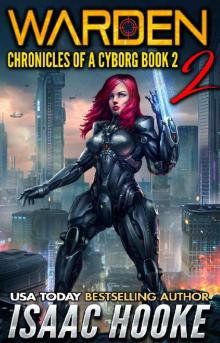 Warden 2
Warden 2 Devastator
Devastator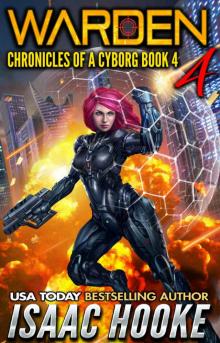 Warden 4
Warden 4 Emperor
Emperor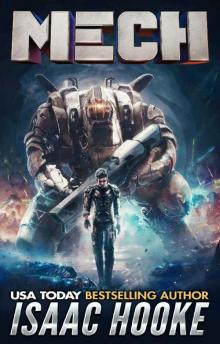 Mech
Mech Conqueror
Conqueror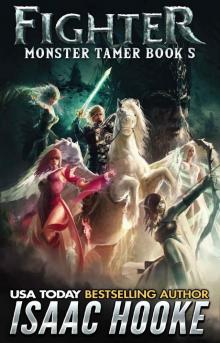 Fighter
Fighter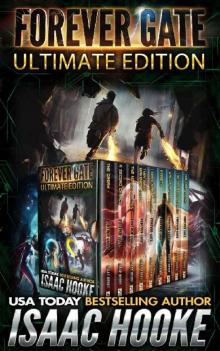 The Forever Gate Ultimate Edition
The Forever Gate Ultimate Edition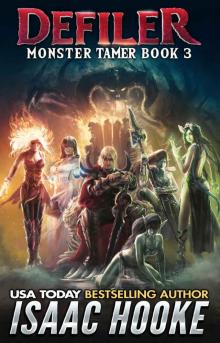 Defiler
Defiler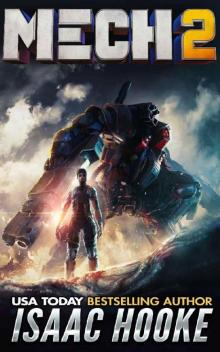 Mech 2
Mech 2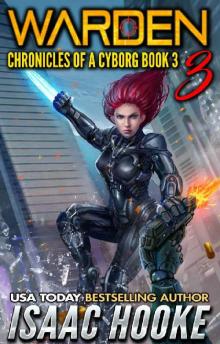 Warden 3
Warden 3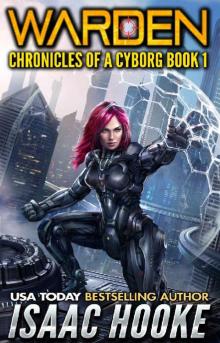 Warden 1
Warden 1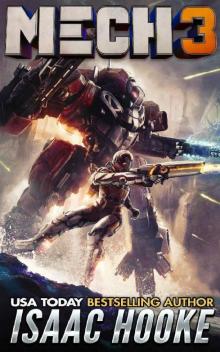 Mech 3
Mech 3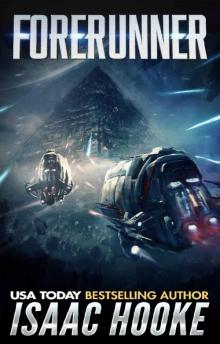 Forerunner
Forerunner The Alliance (AI Empire Book 2)
The Alliance (AI Empire Book 2)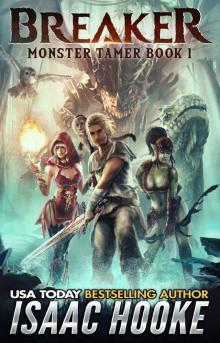 Breaker (Monster Tamer Book 1)
Breaker (Monster Tamer Book 1)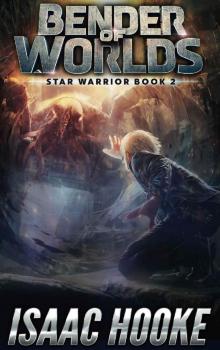 Bender of Worlds
Bender of Worlds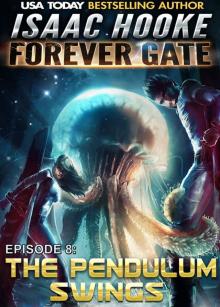 The Pendulum Swings (The Forever Gate Book 8)
The Pendulum Swings (The Forever Gate Book 8) The Link
The Link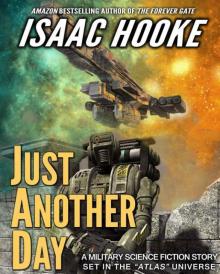 Just Another Day
Just Another Day Star Warrior
Star Warrior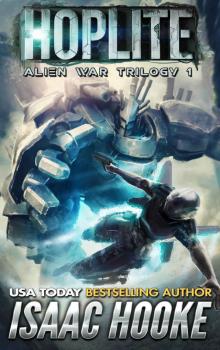 Alien War Trilogy 1: Hoplite
Alien War Trilogy 1: Hoplite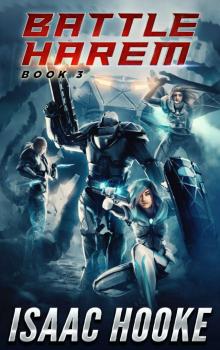 Battle Harem 3
Battle Harem 3 The Ethan Galaal Series: Books 1 - 3
The Ethan Galaal Series: Books 1 - 3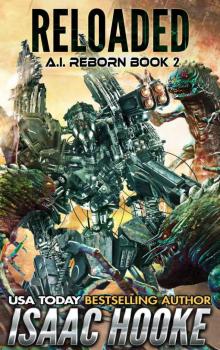 Reloaded
Reloaded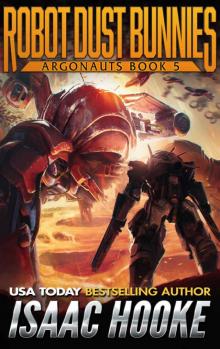 Robot Dust Bunnies (Argonauts Book 5)
Robot Dust Bunnies (Argonauts Book 5) Battle Harem
Battle Harem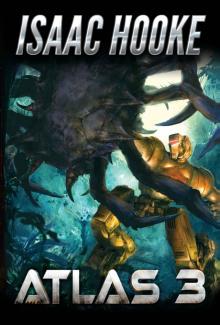 ATLAS 3 (ATLAS Series Book 3)
ATLAS 3 (ATLAS Series Book 3)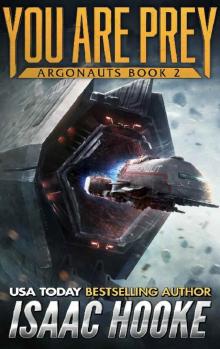 Argonauts 2: You Are Prey
Argonauts 2: You Are Prey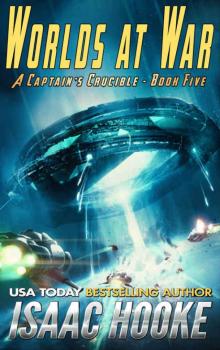 Worlds at War (A Captain's Crucible Book 5)
Worlds at War (A Captain's Crucible Book 5)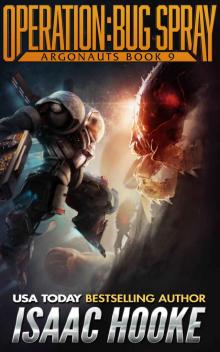 Operation: Bug Spray (Argonauts Book 9)
Operation: Bug Spray (Argonauts Book 9)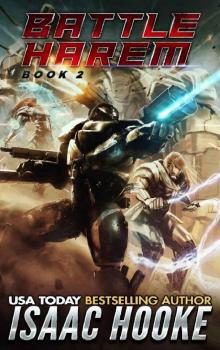 Battle Harem 2
Battle Harem 2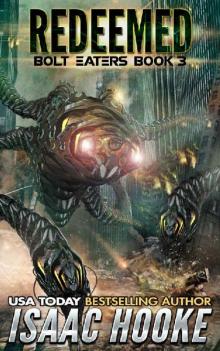 Redeemed (Bolt Eaters Trilogy Book 3)
Redeemed (Bolt Eaters Trilogy Book 3)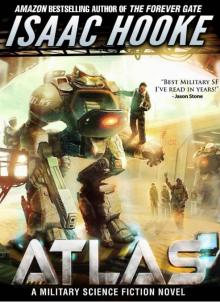 Atlas
Atlas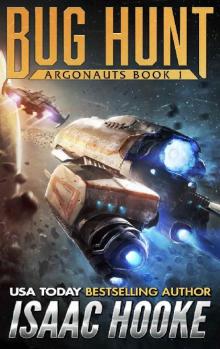 Argonauts 1: Bug Hunt
Argonauts 1: Bug Hunt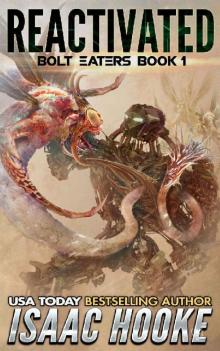 Reactivated (Bolt Eaters Trilogy Book 1)
Reactivated (Bolt Eaters Trilogy Book 1)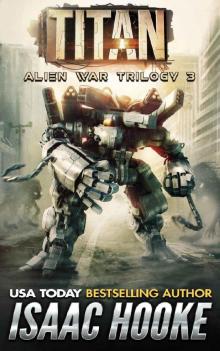 Alien War Trilogy 3: Titan
Alien War Trilogy 3: Titan Flagship (A Captain's Crucible #1)
Flagship (A Captain's Crucible #1)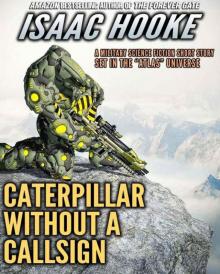 Caterpillar Without A Callsign
Caterpillar Without A Callsign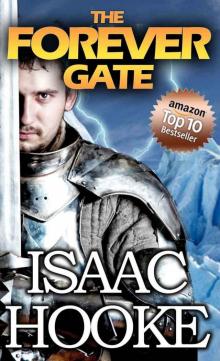 The Forever Gate
The Forever Gate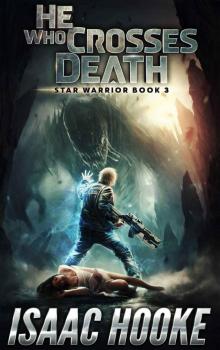 He Who Crosses Death (Star Warrior Quadrilogy Book 3)
He Who Crosses Death (Star Warrior Quadrilogy Book 3)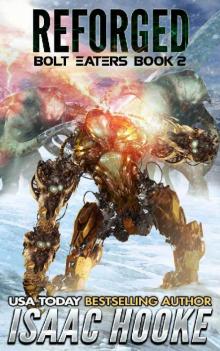 Reforged (Bolt Eaters Trilogy Book 2)
Reforged (Bolt Eaters Trilogy Book 2)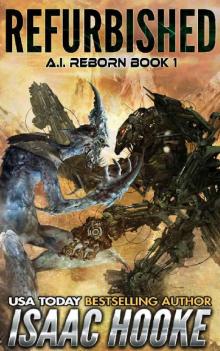 Refurbished
Refurbished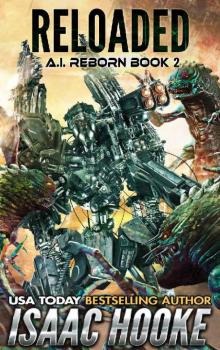 Reloaded (AI Reborn Trilogy Book 2)
Reloaded (AI Reborn Trilogy Book 2)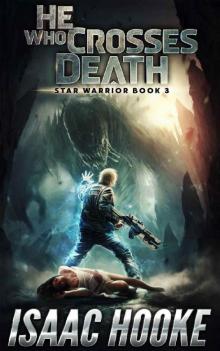 He Who Crosses Death
He Who Crosses Death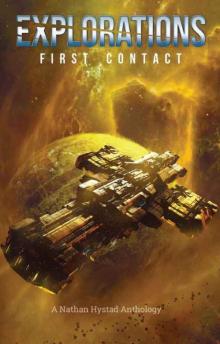 Explorations: First Contact
Explorations: First Contact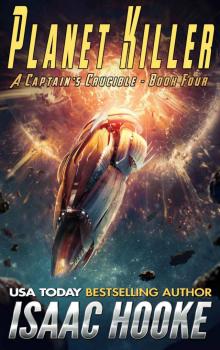 Planet Killer (A Captain's Crucible Book 4)
Planet Killer (A Captain's Crucible Book 4)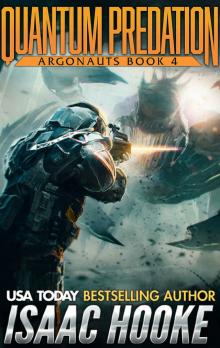 Quantum Predation (Argonauts Book 4)
Quantum Predation (Argonauts Book 4) Clandestine-IsaacHooke-FreeFollowup
Clandestine-IsaacHooke-FreeFollowup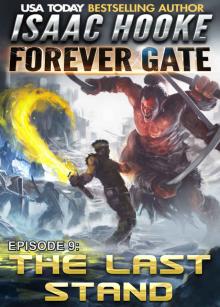 The Last Stand (The Forever Gate Book 9)
The Last Stand (The Forever Gate Book 9)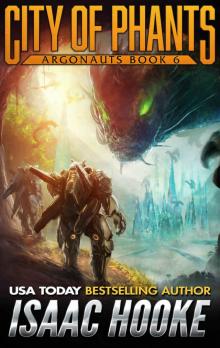 City of Phants (Argonauts Book 6)
City of Phants (Argonauts Book 6)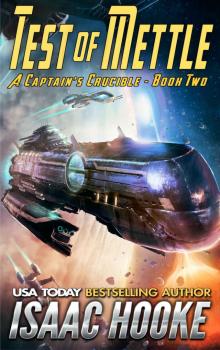 Test of Mettle (A Captain's Crucible Book 2)
Test of Mettle (A Captain's Crucible Book 2)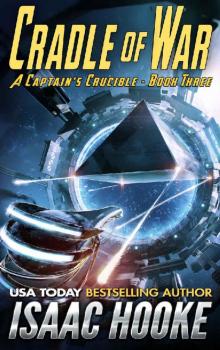 Cradle of War (A Captain's Crucible Book 3)
Cradle of War (A Captain's Crucible Book 3)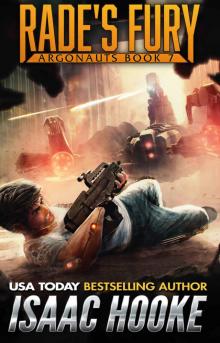 Rade's Fury (Argonauts Book 7)
Rade's Fury (Argonauts Book 7)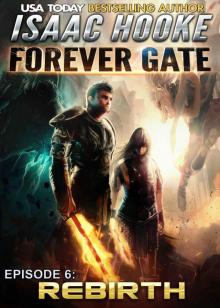 Rebirth (The Forever Gate Book 6)
Rebirth (The Forever Gate Book 6)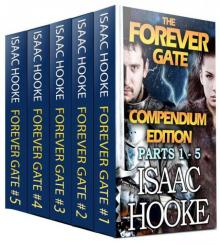 The Forever Gate Compendium Edition
The Forever Gate Compendium Edition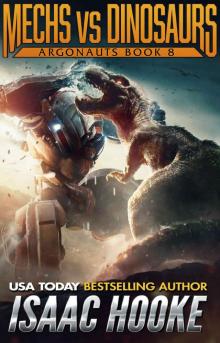 Mechs vs. Dinosaurs (Argonauts Book 8)
Mechs vs. Dinosaurs (Argonauts Book 8)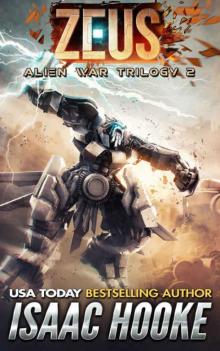 Alien War Trilogy 2: Zeus
Alien War Trilogy 2: Zeus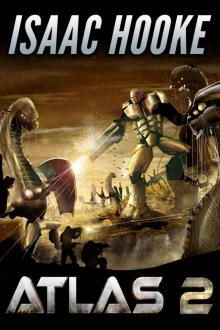 ATLAS 2 (ATLAS Series Book 2)
ATLAS 2 (ATLAS Series Book 2)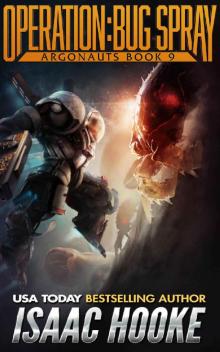 Operation_Bug Spray
Operation_Bug Spray